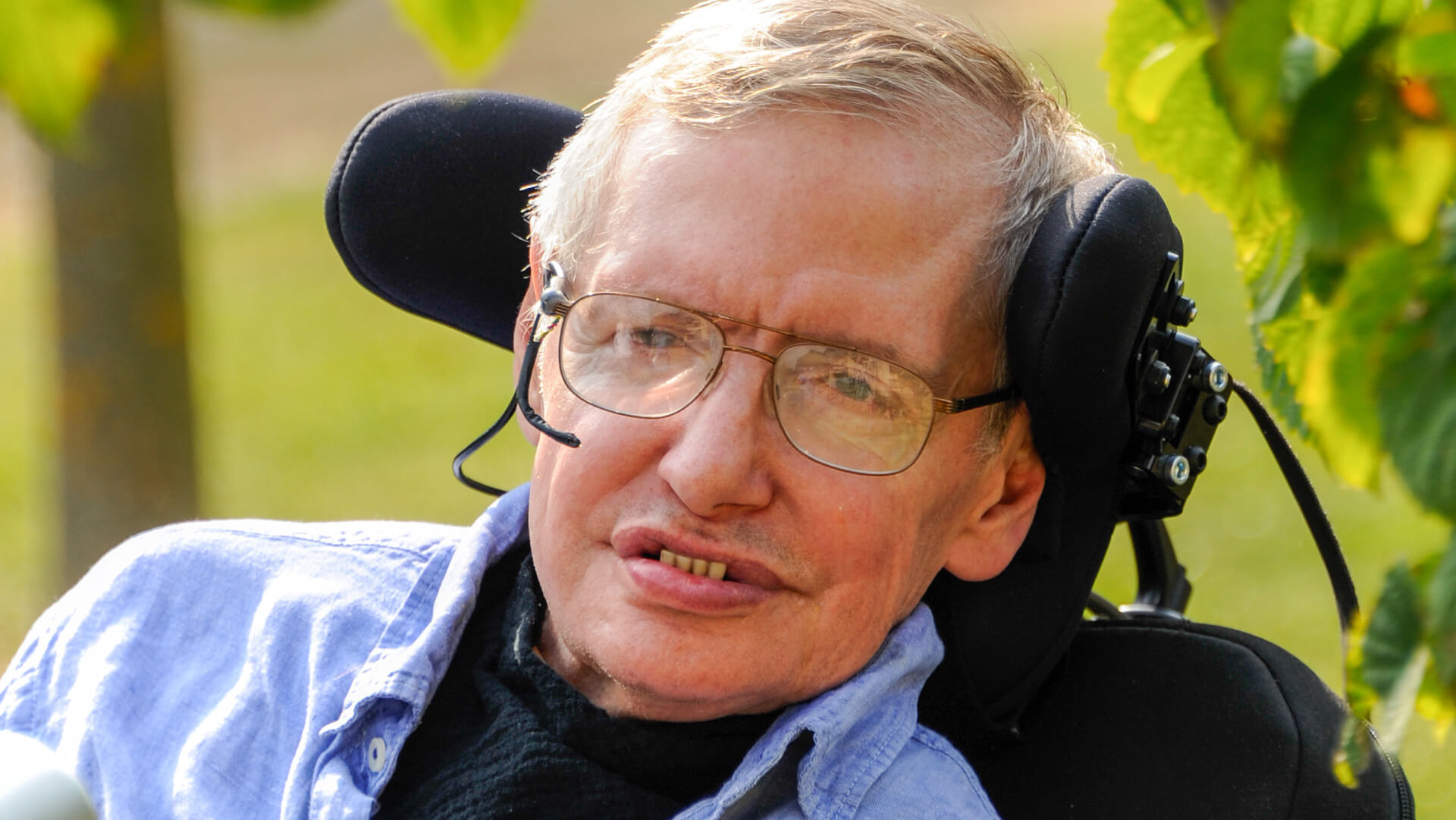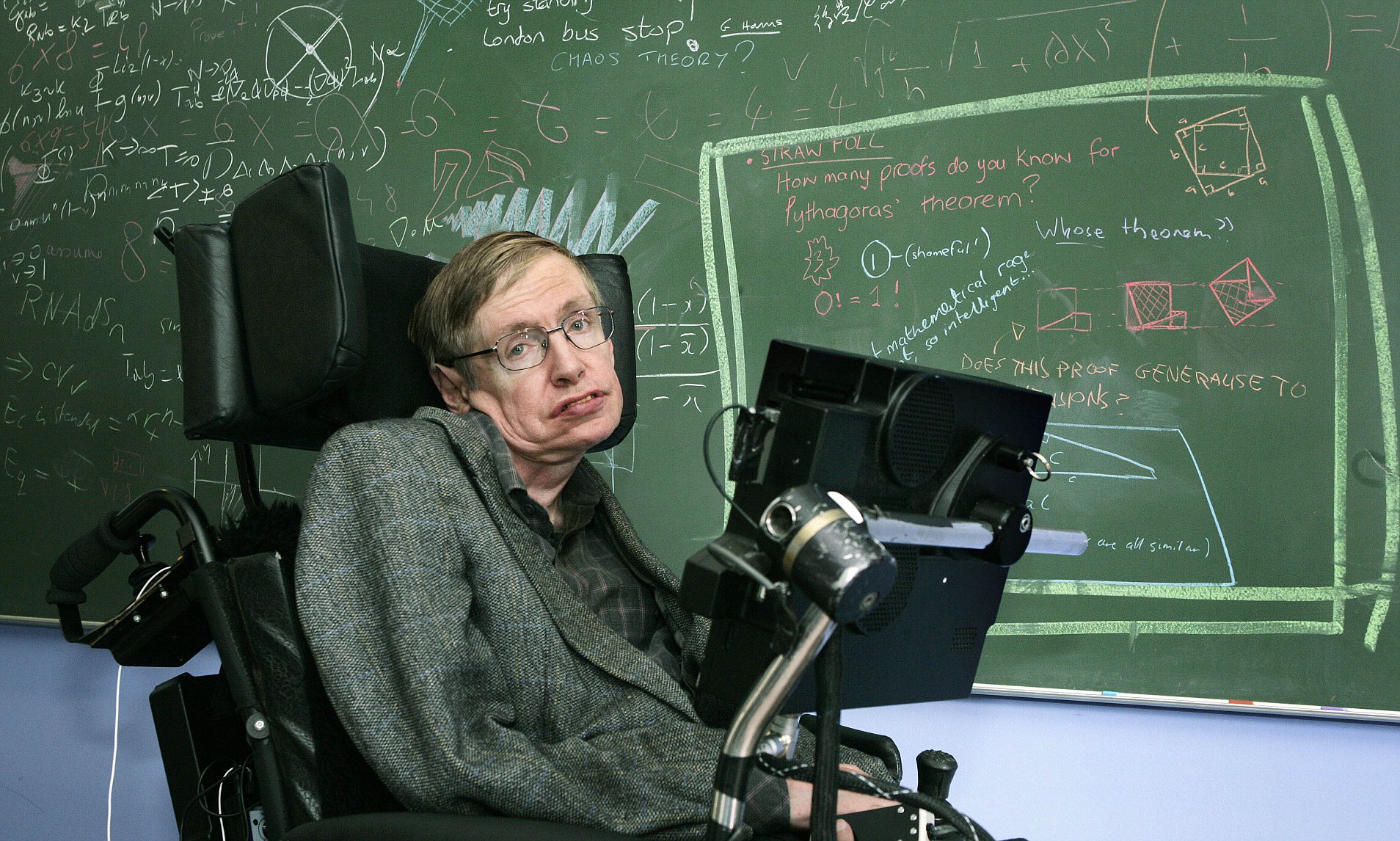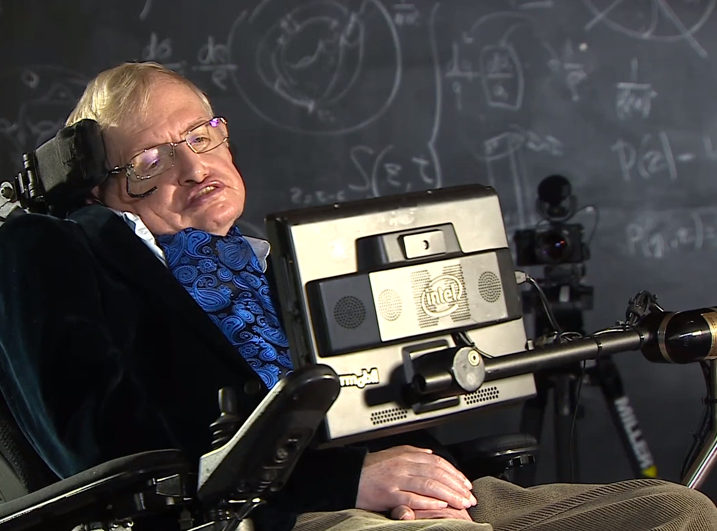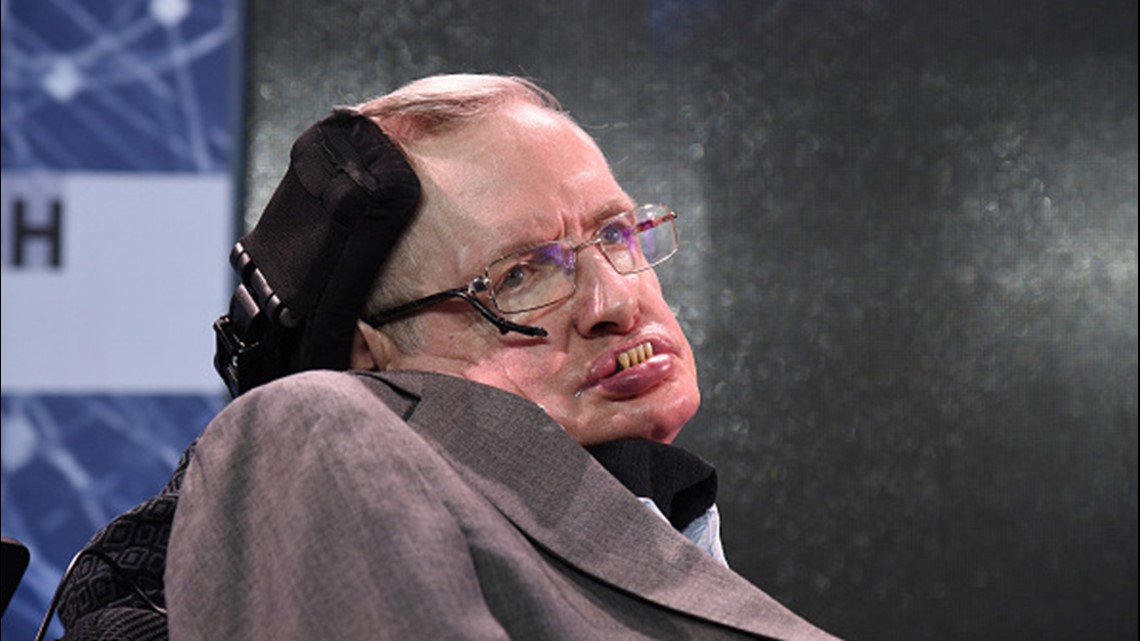Stephen Hawking Net Worth In 2023 - A Brilliant Mind And Enduring Legacy
From 1979 till 2009, he held the position of Lucasian Professor of Mathematics at the University of Cambridge. At the age of 76, Stephen Hawking passed away on March 13, 2018.This article delves into Stephen Hawking net worth, financial legacy and explores how his wealth compared to his scientific contributions.
Author:Alex MercerReviewer:Nathanial BlackwoodNov 09, 202312.7K Shares438.1K Views

Stephen Hawking was an author, cosmologist, and theoretical physicist from England. At the time of his death, he was the director of research at the University of Cambridge's Centre for Theoretical Cosmology.
From 1979 till 2009, he held the position of Lucasian Professor of Mathematics at the University of Cambridge. At the age of 76, Stephen Hawking passed away on March 13, 2018.This article delves into Stephen Hawking net worth, financial legacy and explores how his wealth compared to his scientific contributions.
Quick Facts About Stephen Hawking
| Date Of Birth | Jan 8, 1942 - Mar 13, 2018 |
| Place Of Birth | Jan 8, 1942 - Mar 13, 2018 |
| Profession | Science writer, Physicist, Scientist, Astronomer, Mathematician, Professor, Author, Cosmologist, Writer, Astrophysicist |
| Nationality | United Kingdom |
Early Life & Education
Stephen Hawking was born on January 8, 1942, in Oxford, England. He came from a family of intellectuals; his father, Frank Hawking, was a medical researcher, and his mother, Isobel Hawking, hailed from a family of doctors. This academic environment likely contributed to Hawking's early interest in science.
Hawking attended St. Albans School, a prestigious all-boys school in Hertfordshire. He was an average student academically but displayed a natural aptitude for mathematics and an insatiable curiosity about the natural world.
In 1959, Hawking entered University College, Oxford, where he pursued a degree in physics. Although he initially found the academic environment at Oxford uninspiring, he later described his time there as crucial in shaping his intellectual development. It was during this period that he decided to focus on cosmology and the study of the universe.
After completing his undergraduate studies, Hawking moved on to the University of Cambridge, where he pursued a doctorate in theoretical physics. His doctoral thesis, completed in 1966, explored the concept of singularities in the universe and laid the foundation for his later work on black holes. This academic journey marked the beginning of a remarkable career that would ultimately reshape our understanding of the cosmos.
Professional Career
Hawking achieved popularity with a number of popular science novels that explore his ideas and cosmology in general. For an unprecedented 237 weeks, his book "A Brief History of Time" topped the bestseller list. The highest civilian honor in the country, the Presidential Medal of Freedom, was given to Hawking.
When Hawking demonstrated that black holes aren't the information vacuums that physicists had previously believed them to be in 1974, his studies and discoveries catapulted him into scientific prominence. Hawking proved that radiation, or "matter," may escape a collapsing star's gravitational pull.
Fittingly, this hypothesis was called Hawking Radiation. In his contentious book The Grand Design, published in September 2010, Hawking argued against the idea that God might have created the cosmos. His most recent research comes to the conclusion that the Big Bang was nothing more than the inevitable result of the rules of physics. Hawking came in at number 25 in the BBC's 2002 survey of the Greatest Britons.
In 2012, Hawking made headlines once again, but for quite different reasons: He took part in a 2011 research on the iBrain, a headband-like gadget that records electrical brain waves and may prove transformative for ALS patients. He had a cameo on "The Big Bang Theory" in the same year, showcasing his sense of comedy on American television.
Awards And Honors
Stephen Hawking received numerous awards, honors, and recognitions throughout his lifetime in recognition of his outstanding contributions to theoretical physics and cosmology. Some of the most notable awards and honors he received include:
- Copley Medal (2006) -Awarded by the Royal Society, this is one of the world's oldest and most prestigious scientific prizes. Hawking received it for his exceptional contributions to theoretical physics and cosmology.
- Albert Einstein Award (1978) -This award from the Albert Einstein College of Medicine recognizes individuals for their significant contributions to science. Hawking was honored for his work on Hawking radiation and black hole thermodynamics.
- Gold Medal of the Royal Astronomical Society (1985) -Hawking received this medal for his outstanding contributions to theoretical physics, particularly in the understanding of black holes and the universe's structure.
- Wolf Prize in Physics (1988) -This Israeli award recognized Hawking for his exceptional work on the nature of black holes and the universe.
- Dirac Medal (1987) -Awarded by the Institute of Physics, this medal acknowledged his significant contributions to theoretical physics and his role in advancing the understanding of black holes.
- Presidential Medal of Freedom (2009) -The United States' highest civilian honor was awarded to Hawking by President Barack Obama for his contributions to science and his inspirational life story.
- Fundamental Physics Prize (2013) -This prestigious award recognized Hawking's achievements in the field of theoretical physics. He shared the prize with other leading physicists.
- Commander of the Order of the British Empire (CBE, 1982) -This honor, bestowed by Queen Elizabeth II, recognized Hawking's services to science and was one of the highest civilian awards in the UK.
- Companion of Honour (CH, 1989) -Hawking was appointed a Companion of Honour for his exceptional contributions to physics and his role in science communication.
- Fellowship of the Royal Society (1974) -Hawking was elected a fellow of the Royal Society, one of the most prestigious scientific societies in the world, for his outstanding research in the field of theoretical physics.
Stephen Hawking Net Worth
Stephen Hawking's estimated net worth was $20 million at the time of his death in 2018. But his prosperity extended beyond material possessions. The theoretical physicist was widely regarded as one of the most intelligent people of our time, and he made incalculable contributions to science.
Regarding pay, Hawking was awarded a chair at the University of Cambridge, where he taught mathematics for more than 30 years. Although his annual salary was reportedly a little over $140,000, the majority of his fortune came from appearance fees, publication royalties, and private assets.
Real Estate Properties
Throughout his life, Hawking had a number of properties, including a house in Cambridge, England, where he spent more than 50 years. His wheelchair was accommodated in the home thanks to modifications, including ramps and an elevator.
He had a holiday house in France as well. Hawking was renowned for leading a modest life, even with his substantial riches. Rather than squandering his money on tangible goods, he favored supporting humanitarian organizations and scientific research.
Stephen Hawking Legacy
Hawking made substantial contributions to the field of theoretical physics, and his writings will have an ongoing impact on academics and scientists for many years to come. Millions of copies of his best-selling book "A Brief History of Time" have been sold worldwide, and it is now considered a classic in the area of popular science.
Hawking was an outspoken supporter of causes like environmental conservation and nuclear disarmament in addition to his academic work. People all throughout the globe are still inspired by his life and work.
Personal Life Of Stephen Hawking
In 1962, Stephen Hawking attended a party where he met Jane Wilde. They knew the difficulties that would come with Hawking's diagnosis, so they got engaged in the autumn of 1964. On July 14, 1965, they were married. Robert, born in May 1967, Lucy, born in November 1969, and Timothy, born in April 1979, were their three children.
By the early 1980s, Jane was feeling overtaken by her husband's fame and the constant intrusion of nurses and helpers into their lives. Hawking informed Jane in February 1990 that he was divorcing her in favor of Elaine Mason, one of his caregivers, with whom he had been close over the previous several years.
He left the family home, got divorced from Jane in 1995, and got married to Mason in September of the same year. Following his divorce from Jane and his marriage to Elaine Mason, Hawking's family felt cut off from his life. Following a discreet divorce in 2006, Hawking reestablished tighter ties with Jane, his kids, and his grandkids.
Given the size of the cosmos, Hawking thought it plausible that aliens exist, but that communication with them should be avoided. Aliens may plunder Earth for resources, he warned. In 2010, he said, "If aliens visit us, the outcome would be much as when Columbus landed in America, which didn't turn out well for the Native Americans." As an atheist, Hawking believed that "the laws of science govern the universe."
Health Issues
In graduate school, Hawking received a diagnosis of Lou Gehrig's disease, also known as amyotrophic lateral sclerosis (ALS), a neurodegenerative illness that kills motor neurons in the brain and spinal cord and progressively paralyzes a person over decades. During his last year at Oxford, Hawking had become more unsteady on his feet, falling down a few steps and having trouble rowing.
As the issues deepened, his speech started to sound a little slurred. When he came home for Christmas, his family saw the changes. In 1963, at the age of 21, Hawking received the diagnosis. Doctors estimated that he would only have two years to live at the time. Hawking experienced depression after his diagnosis. His illness did not advance as quickly as the doctors had anticipated.
Hawking had trouble walking alone and had almost nonsensical speech, but his original prognosis of having two years to live turned out to be incorrect. For most of his adult life, he remained virtually immobile. He used a speech-generating gadget to communicate when he was confined to a wheelchair.
Interesting Facts About Stephen Hawking
- He initially pursued a degree in mathematics at Oxford but switched to physics because mathematics was considered too easy.
- While at Oxford, Hawking was part of the Oxford rowing team and coxed a team that included future Monty Python member John Cleese.
- Hawking and his wife, Jane Wilde, met shortly before he was diagnosed with ALS. They got married in 1965 and had three children together.
- He was a member of the Oxford University dramatic society, where he played roles in various plays, including the female lead in "Irene in "The Relapse."
- In 2007, he experienced weightlessness during a zero-gravity flight aboard a specially modified Boeing 727.
- Hawking's famous speech-generating device, which he used to communicate, was initially operated by a handheld clicker, and he later controlled it with his cheek muscle.
- He was a member of the Pontifical Academy of Sciences, despite being an atheist, as he believed that science and religion should have a dialogue.
- Hawking made a cameo appearance on the television shows "Star Trek: The Next Generation" and "The Big Bang Theory."
- He expressed a desire to play a James Bond villain. His wish was fulfilled in the documentary "Stephen Hawking's Universe," where he played a Bond villain in a fictional sequence.
- Hawking's voice on his speech-generating device was originally an American accent, but he preferred to switch it to a British accent later on.
- He co-authored a series of children's books with his daughter Lucy, featuring a character named George who embarks on scientific adventures.
- Hawking was an advocate for the search for extraterrestrial intelligence (SETI) and warned against contacting potential extraterrestrial civilizations without careful consideration.
- Despite his physical limitations, Hawking enjoyed traveling and gave lectures and talks around the world. He visited every continent, including Antarctica.
- Hawking enjoyed practical jokes and had a wager with fellow physicist Kip Thorne, betting that a certain discovery about black holes would not pan out. He lost the bet and presented Thorne with a baseball encyclopedia.
Frequently Asked Questions
How Did Hawking’s Illness Impact His Work?
Hawking's motor neuron illness ultimately rendered him immobile after progressively weakening his body. But with the aid of specialized tools and helpers, he managed to go on working. Hawking continues to make significant advances in theoretical physics despite his physical constraints.
What Was Hawking’s Reputation Within The Scientific Community?
Most people considered Hawking to be among the most bright people in theoretical physics. His contemporaries held him in the highest regard for his innovative and significant work. In 1974, he was chosen as a Fellow of the Royal Society, one of the highest honors bestowed upon scientists.
What Other Interests Did Hawking Have Outside Of Physics?
Hawking was a strong supporter of causes like disarmament of nuclear weapons and the environment. In addition, he was interested in pop culture and appeared in a number of cameos on TV series, including Star Trek and The Simpsons.
Final Words
Stephen Hawking's life and work exemplify the limitless potential of the human mind and the power of determination. He leaves behind a legacy of scientific discovery, unparalleled resilience, and an enduring commitment to making science accessible to all. Stephen Hawking will forever be remembered as a brilliant mind who not only unraveled the mysteries of the universe but also inspired generations to explore the wonders of the cosmos.

Alex Mercer
Author
Alex Mercer is a seasoned author and analyst specializing in wealth research, with a keen focus on evaluating the net worth of individuals across various industries. With over a decade of experience in financial analysis and wealth assessment, Alex has developed a nuanced understanding of the factors that contribute to an individual's financial status, from investments and assets to market trends and economic policies. His work involves in-depth reviews and analyses, providing insightful observations on wealth accumulation, management strategies, and the socio-economic implications of wealth distribution.
Throughout his career, Alex has become known for his ability to distill complex financial data into understandable and engaging narratives, making the subject of wealth and net worth accessible to a broad audience. His expertise is not just in numbers but in telling the stories behind them, highlighting the journeys, strategies, and decisions that lead to financial success or challenges. Alex's contributions to the field of wealth research are valuable resources for anyone looking to understand the dynamics of wealth in today's world, offering a unique perspective that bridges the gap between financial analysis and human interest.

Nathanial Blackwood
Reviewer
Nathanial (Nate) Blackwood is a distinguished financial journalist with a decade of experience in net worth analysis. He holds an Economics degree from the University of Finance and a Data Analysis certification, enabling him to blend thorough insights with engaging storytelling. Nate is known for making complex financial information accessible to a wide audience, earning acclaim for his precise and reader-friendly analyses. Beyond his writing, Nate is dedicated to financial literacy, actively participating in educational forums and workshops.
He is the founder of PureNetWealth, a platform that demystifies the financial achievements of public figures by exploring the strategies and decisions behind their fortunes. Nate's work bridges the gap between intricate economic concepts and the general public, inspiring a deeper understanding of wealth dynamics. Follow Nathanial Blackwood for essential insights into the financial narratives shaping our world.
Latest Articles
Popular Articles




